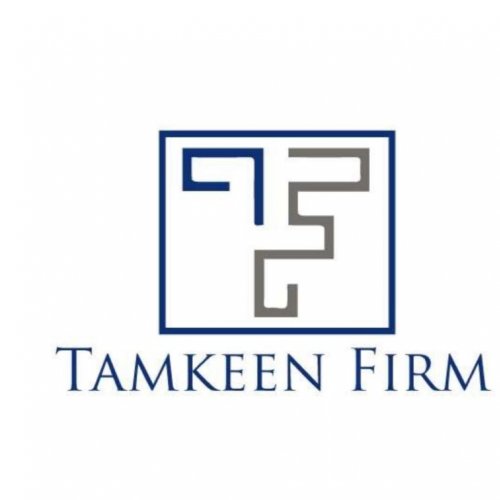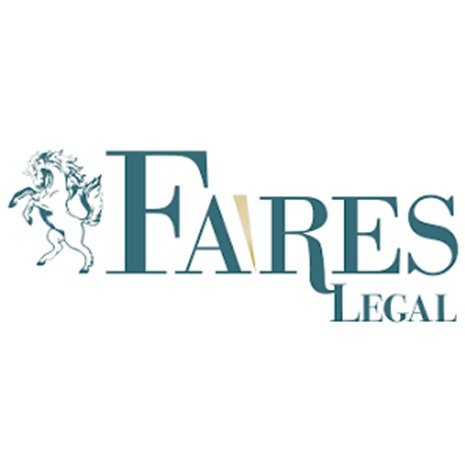Best Nonprofit & Charitable Organizations Lawyers in Tripoli
Share your needs with us, get contacted by law firms.
Free. Takes 2 min.
List of the best lawyers in Tripoli, Libya
About Nonprofit & Charitable Organizations Law in Tripoli, Libya
Nonprofit and charitable organizations play a pivotal role in addressing social issues and advancing various public interests in Tripoli, Libya. These organizations may focus on education, health, community development, or other humanitarian efforts. The legal framework governing nonprofits in Libya ensures that these entities operate transparently and adhere to specific regulations, benefiting both the organizations and the communities they serve. Understanding the basic legal landscape is crucial for anyone involved in or looking to establish a nonprofit or charitable entity in Tripoli.
Why You May Need a Lawyer
Legal assistance is often required in the realm of nonprofit and charitable organizations for several reasons:
- Formation and Registration: Lawyers can help navigate the process of legally establishing a nonprofit organization, including drafting bylaws and other foundational documents.
- Compliance: Maintaining compliance with local laws and regulations is critical. Legal guidance ensures that your organization meets all necessary requirements to avoid penalties or dissolution.
- Taxation: Understanding taxation laws specific to nonprofit entities is crucial. A lawyer can provide assistance with any tax-related queries or issues.
- Contracts and Agreements: Lawyers can draft and review contracts related to donations, partnerships, and other operational aspects to ensure legal soundness.
- Conflict Resolution: In cases of internal disputes or external challenges, a lawyer can offer strategies for resolution and represent the organization’s interests.
- Property and Real Estate: For organizations owning or leasing property, legal advice can ensure compliance with local real estate laws.
Local Laws Overview
The legal environment for nonprofit and charitable organizations in Tripoli is shaped by both national legislation and local regulations. Key aspects include:
- Registration: Nonprofits must register with the Ministry of Culture and Civil Society or relevant authorities to gain legal recognition.
- Governance: Accurate record-keeping and a structured governance model are essential to comply with local laws.
- Funding: Guidelines around accepting donations, managing funds, and financial reporting are strictly regulated to ensure transparency.
- Reporting Requirements: Regular reporting to government bodies is mandated to ensure accountability and transparency.
- International Operations: If engaging in international collaborations, organizations must be aware of potential additional regulatory requirements.
Frequently Asked Questions
1. What is the process to establish a nonprofit in Tripoli?
You must register with the appropriate government authority, typically involving submitting bylaws and other key documents for approval.
2. Are nonprofit organizations tax-exempt in Libya?
Yes, many nonprofit entities are eligible for tax exemptions, but they must comply with specific criteria set forth by the taxation authorities.
3. What reporting obligations do nonprofits have?
Organizations are required to submit periodic reports detailing financial activities and organizational changes to the Ministry of Culture and Civil Society.
4. Can foreign nationals establish a nonprofit in Tripoli?
Yes, foreign nationals can establish nonprofits, though additional criteria and regulations may apply regarding international entities and funding.
5. What are the penalties for noncompliance with nonprofit laws?
Penalties can vary from fines to the revocation of legal status and other legal actions depending on the severity of noncompliance.
6. Is it necessary to have a lawyer to establish a nonprofit?
While not legally required, having a lawyer's assistance is highly recommended to navigate the complexities of the legal and regulatory framework.
7. How can a nonprofit organization obtain funding?
Nonprofits can obtain funding through donations, grants, and partnerships, which must be managed and reported according to legal requirements.
8. Can a nonprofit engage in commercial activities?
Yes, but any commercial activities must align with the organization’s mission and comply with applicable laws.
9. What should nonprofits do if they face legal challenges?
Seeking immediate legal counsel is crucial to address and resolve any legal challenges efficiently.
10. How often should a nonprofit update its bylaws?
Bylaws should be reviewed regularly and updated as necessary, particularly in response to changes in laws or organizational structure.
Additional Resources
Those seeking guidance can turn to several resources:
- The Ministry of Culture and Civil Society: The primary body overseeing nonprofit organizations.
- Local chambers of commerce or business associations: Often provide networking and informational resources.
- Legal Aid and Educational Centers: Can offer pro bono legal advice and educational workshops.
- International NGOs operating locally: Often familiar with regulatory landscapes and may provide insights or partnerships.
Next Steps
If you require legal assistance regarding a nonprofit or charitable organization in Tripoli, consider taking the following steps:
- Research and identify qualified legal professionals or firms with expertise in nonprofit law.
- Compile all necessary documents and information about your organization or proposed entity for discussion with a lawyer.
- Schedule consultations to discuss your needs and explore potential legal strategies or solutions.
- Engage with local nonprofit networks to learn from their experiences and recommendations.
- Ensure ongoing compliance by scheduling regular legal check-ins as your organization grows or evolves.
Lawzana helps you find the best lawyers and law firms in Tripoli through a curated and pre-screened list of qualified legal professionals. Our platform offers rankings and detailed profiles of attorneys and law firms, allowing you to compare based on practice areas, including Nonprofit & Charitable Organizations, experience, and client feedback.
Each profile includes a description of the firm's areas of practice, client reviews, team members and partners, year of establishment, spoken languages, office locations, contact information, social media presence, and any published articles or resources. Most firms on our platform speak English and are experienced in both local and international legal matters.
Get a quote from top-rated law firms in Tripoli, Libya — quickly, securely, and without unnecessary hassle.
Disclaimer:
The information provided on this page is for general informational purposes only and does not constitute legal advice. While we strive to ensure the accuracy and relevance of the content, legal information may change over time, and interpretations of the law can vary. You should always consult with a qualified legal professional for advice specific to your situation.
We disclaim all liability for actions taken or not taken based on the content of this page. If you believe any information is incorrect or outdated, please contact us, and we will review and update it where appropriate.











